Archive: 2024 | 2023 | 2022 | 2021 | 2020 | 2019 | 2018 | 2017

Backed by funding from the European Research Council, Nikolai Axmacher hopes to find out how the brain manages spatial navigation. The results will also be relevant for Alzheimer’s research.
Professor Nikolai Axmacher from Ruhr-Universität Bochum (RUB) has received a Consolidator Grant from the European Research Council (ERC) for his research on the neuronal basics of spatial navigation in humans. The grant amounts to 2 million euros over five years. Among other things, Axmacher is interested in grid cells that are believed to play a central role in rodent navigation, but whose function in humans is largely unknown. The research could also provide new insights into early brain changes in Alzheimer’s disease.

Many years of playing the instrument leave clear traces.
People who play drums regularly for years differ from unmusical people in their brain structure and function. The results of a study by researchers from Bochum suggest that they have fewer, but thicker fibres in the main connecting tract between the two halves of the brain. In addition, their motor brain areas are organised more efficiently. This is the conclusion drawn by a research team headed by Dr. Lara Schlaffke from the Bergmannsheil university clinic in Bochum and Associate Professor Dr. Sebastian Ocklenburg from the biopsychology research unit at Ruhr-Universität Bochum following a study with magnetic resonance imaging (MRI). The results have been published in the journal Brain and Behavior, online on 4 December 2019.
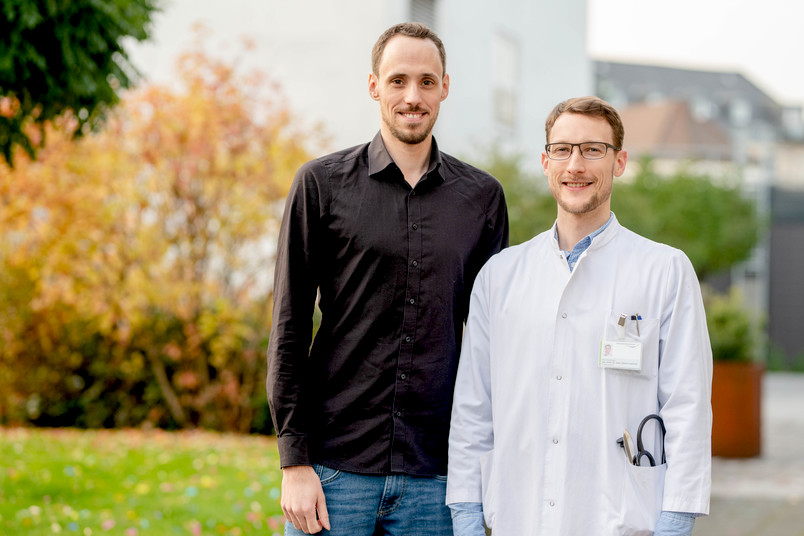
The gut has long been suspected to play a role in autoimmune disease. A research team has now identified evidence of a potential mechanism.
It is incompletely understood which factors in patients with multiple sclerosis (MS) act as a trigger for the immune system to attack the brain and spinal cord. A potential factor is described by a research team in the journal Proceedings of the National Academy of Sciences, PNAS.

Die seltene Autoimmunkrankheit ist verwandt mit der Multiplen Sklerose – aber verläuft meist schwerwiegender.
Ein internationales Forschungskonsortium hat das Medikament Satralizumab erstmals in einer Phase-III-Studie an Patienten getestet. Der Wirkstoff ist zur Therapie der Autoimmunkrankheit Neuromyelitis optica gedacht, die mit der Multiplen Sklerose verwandt ist, aber deutlich seltener auftritt. Patientinnen und Patienten, die zusätzlich zu einer Basis-Immuntherapie mit Satralizumab behandelt wurden, erlitten seltener einen Rückfall als Patienten, die ein Plazebo erhielten. Satralizumab hatte jedoch keinen Effekt auf Schmerzen und Müdigkeit. Die Ergebnisse sind am 28. November 2019 online im New England Journal of Medicine erschienen.
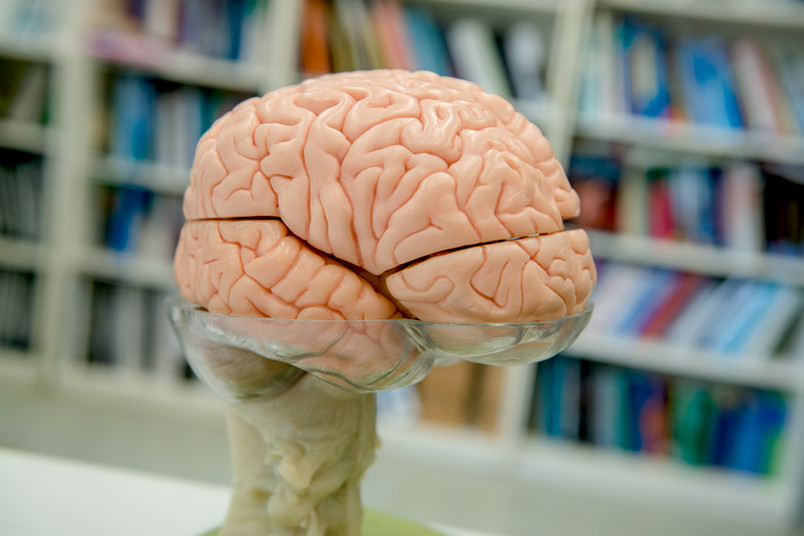
Larger parts of the cerebral cortex than thought process tactile stimuli.
More than ten percent of the cerebral cortex are involved in processing information about our sense of touch – a larger area than previously thought. This is the result of a joint study by researchers from the Max Planck Institute for Human Cognitive and Brain Sciences in Leipzig and Ruhr Universität Bochum, which was published online on 18th November 2019 in the journal Scientific Reports.

In case of arachnophobia and many other phobias, exposure therapy can be a helpful approach. Its effectiveness apparently depends on whether the patient uses hormonal contraception.
Psychologists at Ruhr-Universität Bochum have studied in what way hormonal contraceptives affect the efficacy of anxiety therapy. They demonstrated that women who were on the pill benefitted less from exposure therapy than women who didn’t take any oral contraceptives. Friederike Raeder, Professor Armin Zlomuzica and colleagues describe the results in the Journal of Psychiatric Research, published online on 28 September 2019.
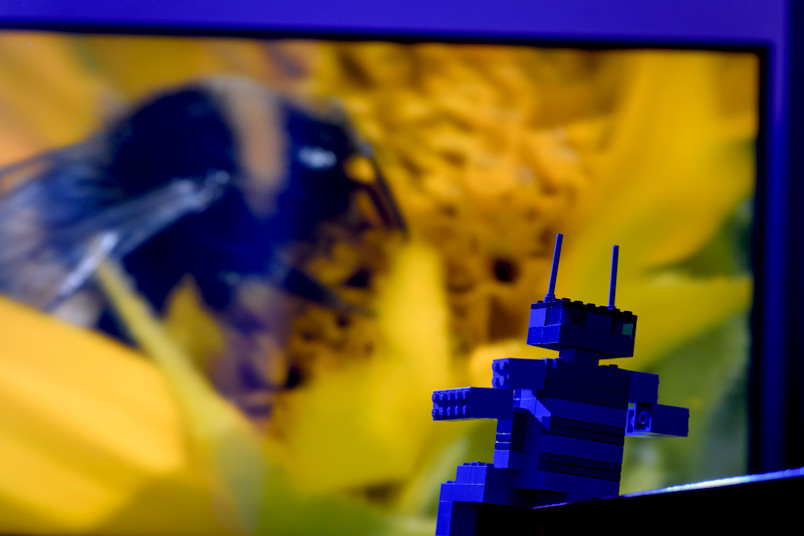
The processes underlying artificial intelligence today are in fact stupid. Researchers from Bochum are attempting to make them smarter.
Radical change, revolution, megatrend, maybe even a risk: artificial intelligence has penetrated all industrial segments and keeps the media busy. Researchers at the Ruhr-Universtität Bochum (RUB) Neural Computation Institute have been studying it for 25 years. Their guiding principle is: in order for machines to be truly intelligent, new approaches must first render machine learning more efficient and flexible.
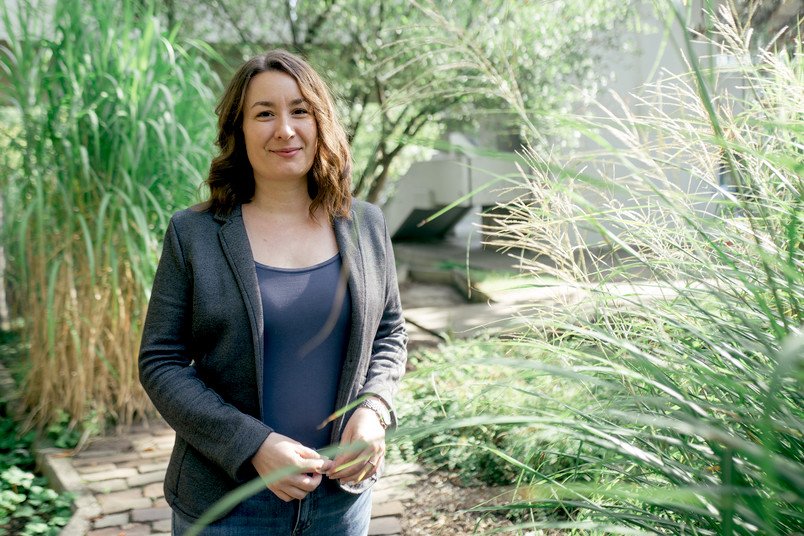
The early career researcher wants to understand what causes glaucoma and how its treatment can be improved.
Dr. Jacqueline Reinhard from the Department of Cell Morphology and Molecular Neurobiology at Ruhr Universität Bochum has been awarded for her research on glaucoma eye disease.
The biologist has been awarded the glaucoma research prize by Deutsche Ophthalmologische Gesellschaft (DOG). She received the prize amounting to 5,000 euros and sponsored by Santen GmbH in Berlin on 28 September 2019.
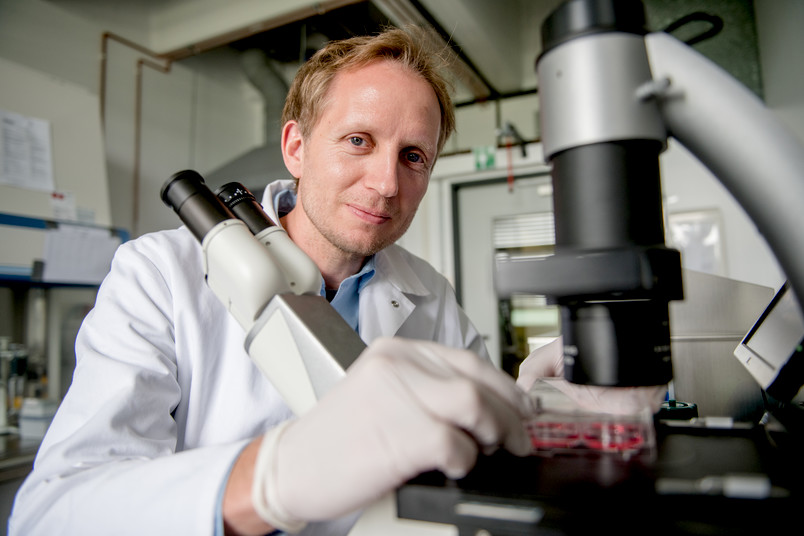
In combination with other methods, Crispr technology might one day render animal testing obsolete, according to the authors of a review article in “Trends in Cell Biology”.
Crispr technology has greatly facilitated gene editing. Associate Professor Thorsten Müller from Ruhr-Universität Bochum and Dr. Hassan Bukhari from Harvard Medical School discuss its pros and cons in a review article in the journal “Trends in Cell Biology” from 12 September 2019. They believe Crispr technology has future potential primarily if it can be rendered usable in the field of stem cell research.
Medical students practice examination conversations in virtual space.
Medical students at Ruhr-Universität Bochum (RUB) will have the opportunity to conduct psychiatric interviews with avatars in future. “This will enable them to practise with patients presenting the full range of symptoms and degrees of severity and to broaden the panorama,” explains project manager, Associate Professor Paraskevi Mavrogiorgou from the clinic for psychiatry, psychotherapy and preventive medicine. Students wearing a virtual reality headset (VR headset) will be able to meet those avatars in a three-dimensional space – or, as experts call it, “exploration”. The clinic is planning to start using avatars in the summer semester 2020.
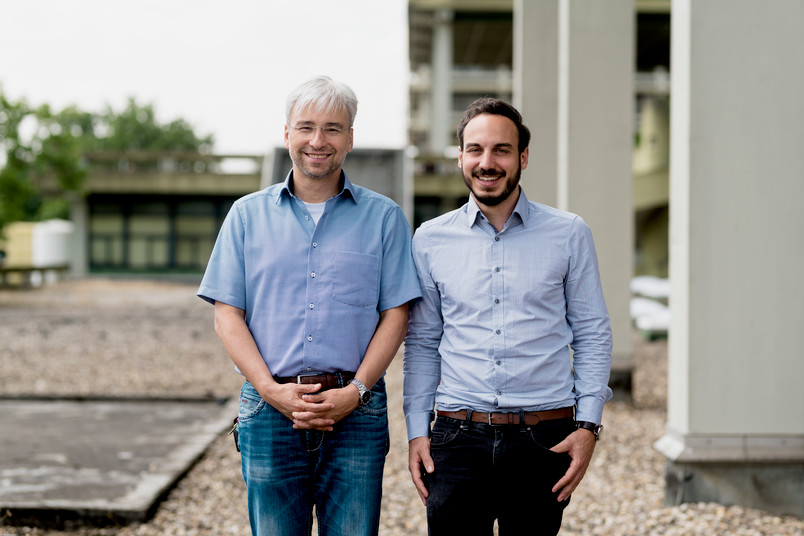
Preventing the deactivation of a protein could be the key to repairing the central nervous system.
Injuries to nerve fibers in the brain, spinal cord, and optic nerves usually result in functional losses as the nerve fibers are unable to regenerate. A team from the Department of Cell Physiology at Ruhr-Universität Bochum (RUB) led by Professor Dietmar Fischer has deciphered new mechanisms that enable the regeneration of such fibers. This could open up new treatment approaches for the brain, optic nerve, and spinal cord injuries. The researchers report on these results in the journal Nature Communications Biology on 23 August 2019.

New drugs haven’t brought about any significant improvement in the treatment of progressive multiple sclerosis. For a variety of reasons.
Medications currently used to treat multiple sclerosis (MS) can merely reduce relapses during the initial relapsing-remitting phase. Many patients, however, develop progressive MS at a later stage, with disability becoming progressively worse. This type cannot be sufficiently treated at yet. Possible causes why an effective therapy for progressive MS is still lacking have been compiled by an international research team in a review article in the journal “Nature Reviews Drug Discovery” from 9 August 2019.
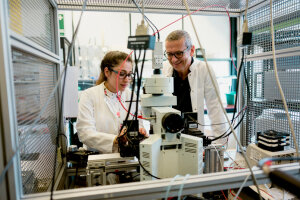
So far, development has been mainly based on a trial-and-error approach. But a novel method might help save a lot of time.
A new strategy for designing light-sensitive proteins has been developed by researchers at Ruhr-Universität Bochum (RUB). In collaboration with a colleague from Münster, the team headed by Professor Stefan Herlitze, Department of General Zoology and Neurobiology at RUB, and Professor Klaus Gerwert, Department of Biophysics at RUB, has published an article on the method in the journal “Chembiochem”, where it was featured as the cover story in the edition from 15 July 2019.
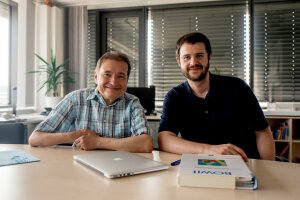
What is the capital city of Tajikistan? When did Einstein create his famous theory of relativity? And when did Goethe die? Some people seem to have an answer to every general knowledge question. Why?
The brains of people with excellent general knowledge are particularly efficiently wired. This was shown by neuroscientists at Ruhr-Universität Bochum and Humboldt-Universität zu Berlin using magnetic resonance imaging. The team describes the results in the European Journal of Personality on 28 July 2019.

A team of researchers from Bochum evaluated 40 studies conducted over 60 years.
Over two thirds of all people prefer to carry a baby in their left arm. The figure is as high as three quarters for women, and the same also applies to right-handed people. This is the result of an analysis of 40 studies from the past 60 years carried out by a team from the Department of Biopsychology at Ruhr-Universität Bochum (RUB). The experts assume that one reason for this preference is that emotions are primarily processed in the right hemisphere of the brain, which is linked to the left side of the body. The team led by lead author Julian Packheiser reports in the journal Neuroscience and Biobehavioral Reviews on 26 June 2019.
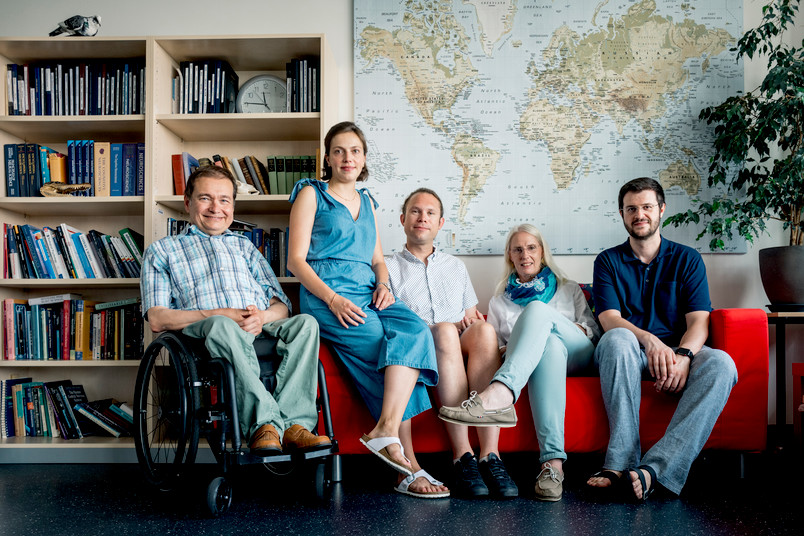
Is your tax return still not finished and cleaning the house has been put off until next week? Your genes could be to blame. At least for women.
Some people tend to postpone actions. In women, this trait is associated with a genetic predisposition towards a higher level of dopamine in the brain. This is what researchers from Ruhr-Universität Bochum and the Technical University of Dresden discovered using genetic analyses and questionnaires. They were unable to identify this correlation in men.
Erhan Genç reports on the results together with Caroline Schlüter, Dr. Marlies Pinnow, Professor Onur Güntürkün, Professor Christian Beste and associate professor (PD) Dr. Sebastian Ocklenburg in the journal Social Cognitive and Affective Neuroscience on 3 July 2019.

A further important milestone on the path to becoming a University of Excellence.
On 5th July 2019, the Joint Science Conference (Gemeinsame Wissenschaftskonferenz – GWK) decided to fund the “Think” research building at Ruhr-Universität Bochum (RUB) – the Bau- und Liegenschaftsbetrieb NRW (BLB NRW, the real estate services of the state of North Rhine-Westphalia) is continuing with its building planning.
After the German Council of Science and Humanities recommended funding for the “Think” research building (Centre for Theoretical and Integrative Neuroscience and Cognitive Science) in May 2019, the Joint Science Conference has now finally decided on funding.

Ein Medikament gegen Morbus Huntington zielt darauf ab, die Belastung des Gehirns durch schadhafte Genprodukte zu reduzieren. Erstmals hat ein Konsortium bei Patienten untersucht, wie verträglich die Substanz ist.
Die Ergebnisse zur Verträglichkeit berichten die Forscherinnen und Forscher im New England Journal of Medicine vom 13. Juni 2019. Das University College London koordinierte die Studie. In Deutschland beteiligt waren die Abteilung für Neurologie des Universitätsklinikums Ulm/Universitäts- und Rehabilitationskliniken Ulm (Prof. Dr. Bernhard Landwehrmeyer), das Huntington-Zentrum NRW am St. Josef-Hospital – Universitätsklinikum der Ruhr-Universität Bochum (Prof. Dr. Carsten Saft) und die Charité – Universitätsmedizin Berlin (Prof. Dr. Josef Priller).

Researchers have made new discoveries about how certain brainwaves aid navigation. They hope that the methods may benefit patients suffering from neurodegenerative disorders one day.
A team headed by Dr. Lukas Kunz, Universitätsklinikum Freiburg, and Professor Nikolai Axmacher, Head of the Department of Neuropsychology at Ruhr-Universität Bochum, published their findings on 3 July 2019.

Both individual nerve cells and large neuronal assemblies appear to be relevant for spatial navigation. But what’s the relationship between both?
Various theories on this topic were put forward by an international team in the journal “Trends in Cognitive Sciences” from 24 May 2019. The review article was jointly authored by Dr. Lukas Kunz from the University Medical Center in Freiburg, Professor Liang Wang from the Chinese Academy of Sciences in Beijing, and Professor Nikolai Axmacher from Ruhr-Universität Bochum, together with colleagues from Columbia University in New York.

The causes of the disease are for the most part obscure. Researchers intend to expose them using cerebral organoids grown from stem cells.
In the majority of cases, dementia can be traced back to Alzheimer’s disease. Its causes are not really understood yet. What is known is that plaques form from misfolded proteins and that there is an increase in neuronal cell death levels in the brain. However, the plaques don’t necessarily go hand in hand with any symptoms. Dr. Thorsten Müller, Head of the research group Cell Signalling at the Chair of Molecular Biochemistry at Ruhr-Universität Bochum (RUB), suspects other deposits to cause the disease, namely ones that form in the nuclei. He intends to verify this hypothesis using tissue that resembles that of the brain. Rubin, the RUB’s science magazine, published a report on his research.
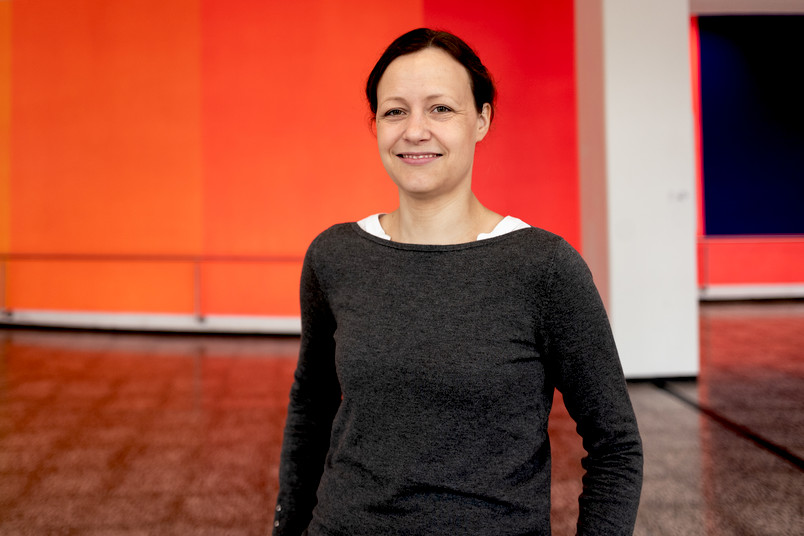
Nothing immediately evokes memories like odours. Two neuroscientists have examined why olfaction plays a special role in memory.
How sensory perception in the brain affects learning and memory processes is far from fully understood. Two neuroscientists of Ruhr-Universität Bochum (RUB) have discovered a new aspect of how the processing of odours impacts memory centres. They showed that the piriform cortex – a part of the olfactory brain – has a direct influence on information storage in our most important memory structure, the hippocampus. Dr. Christina Strauch and Professor Denise Manahan-Vaughan report about their findings in the online edition of the magazine Cerebral Cortex on 9 April 2019.

When the fear of spiders or heights gets so extreme that it interferes with everyday life, it often makes sense to undergo behavioural therapy. The approach works quite well, and it could become even more efficient.
Bochum-based psychologists have studied how the application of the stress hormone cortisol affects exposure therapy for anxiety disorders. The researchers knew from earlier studies that extinction learning, which constitutes the foundation of exposure therapy, can be reinforced by administering cortisol. However, the team headed by Professor Armin Zlomuzica at Zentrum für Psychotherapie (psychotherapy centre) at Ruhr-Universität Bochum (RUB) has demonstrated with a group of arachnophobics that an application of cortisol after exposure is not beneficial for the patients. The report was published in Rubin, the RUB’s science magazine.
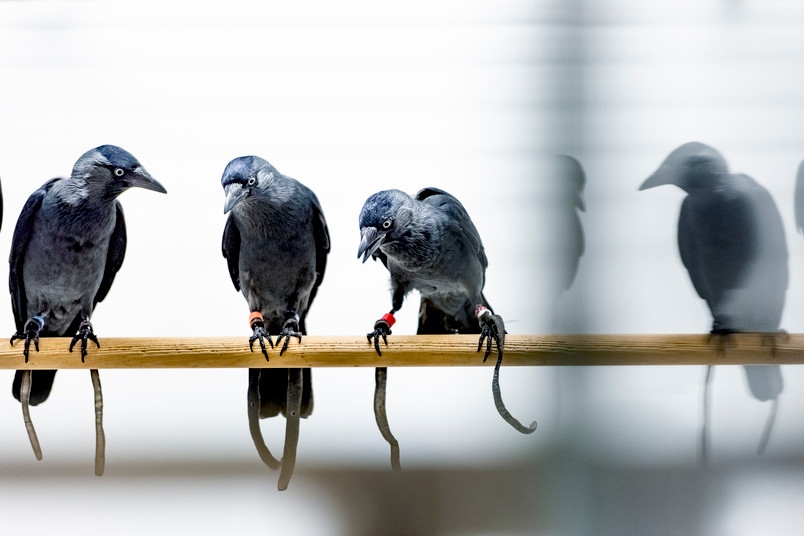
Time and patience are crucial in order to work with the eccentric corvids. Still, they are among the most intelligent birds in the avian kingdom.
Corvids are capable of cognitive feats that almost resemble those of humans. Neuroscientists at Ruhr-Universität Bochum (RUB) intend to find out how their brain manages to fulfil such complex tasks – although its structure is completely different than that of the human brain. For a year, the researchers have been training two jackdaws in a complex behavioural experiment, where the birds learn to remember what they did where and when. The underlying processes in the brain are to be determined through subsequent neurophysiological analyses. An article on the research conducted by the work group Avian Cognitive Neuroscience, headed by Dr. Jonas Rose, has been published in the RUB’s science magazine Rubin.
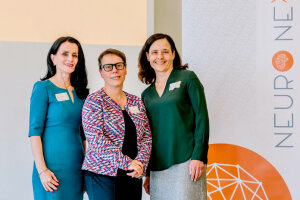
The network aims to raise the international visibility and facilitates networking with female researchers.
At RUB, a new worldwide network for female researchers in neuroscience has been launched. The digital platform “Neuronexxt – Network for Women in Neuroscience” aims to raise the visibility of women in this research area and shall provide a tool to find female experts for neuroscientific topics.

Brain tumour treatment with Bevacizumab may affect the function of the hippocampus.
Glioblastoma is the most common kind of brain tumour in adults. It is a very aggressive form of cancer, patients with this diagnosis have a median post-diagnosis survival of 15 months. Especially in the US, the drug Bevacizumab is used to treat glioblastomas. The drug is not chemotherapy in the classical sense, but involves therapy with an antibody that is designed to stop cancer growth. Evidence from a large-scale therapy study indicates that glioblastoma patients treated with Bevacizumab may develop cognitive impairment. A team of scientists from the Ruhr-Universität Bochum (RUB) therefore investigated how Bevacizumab affects brain cells. The researchers describe their results in the journal "Frontiers in Cellular Neuroscience" published online on 26 March 2019.
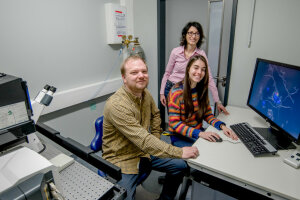
Neurodegenerative diseases such as Huntington’s or Parkinson’s disease are associated with misfolded and aggregated proteins. Researchers have discovered a new mechanism used by cells to protect themselves.
Researchers have identified a protein complex that marks misfolded proteins, stops them from interacting with other proteins in the cell and directs them towards disposal. In collaboration with the neurology department at the Ruhr-Ubiversität’s St. Josef-Hospital as well as colleagues at the Max Planck Institute of Biochemistry in Martinsried, an interdisciplinary team under the auspices of Professor Konstanze Winklhofer at Ruhr-Universität Bochum has identified the so-called Linear Ubiquitin Chain Assembly Complex, Lubac for short, as a crucial player in controlling misfolded proteins in cells.
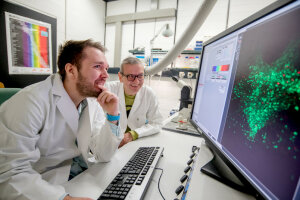
This new tool is a true two-in-one solution. In future, it might help to study a number of diseases.
Using a novel optogenetic tool, researchers have successfully controlled, reproduced and visualised serotonin receptor signals in neural cells. To this end, they modified a photosensitive membrane receptor in the eye, namely melanopsin. The team from Ruhr-Universität Bochum, headed by Dennis Eickelbeck and Professor Stefan Herlitze, described its project in the journal Nature Communications Biology on 14 February 2019.
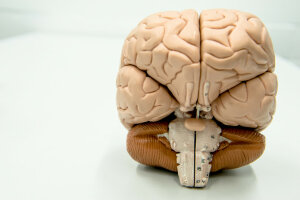
Self-regulation of brain rhythms frees resources facilitating learning
Our brains filter the gigantic amounts of information that flow over us in a highly efficient way. Neuronal alpha oscillations in the range of 10 Hz are one of these. They reduce processing in a certain brain region a provide resources for upcoming information. Alpha oscillations can be easily influenced by neurofeedback training. A team from the Neural Plasticity Lab at the Institute of Neuroinformatics at Ruhr-Universität Bochum (RUB) and the Department of Neurology at the RUB Hospital Bergmannsheil has discovered that participants can self-regulate their learning success in a perceptual learning task by altering their alpha osciallations. They report on the work in the journal Nature Communications on 16 January 2019.

Als einzige deutsche Hochschule bietet die Ruhr-Universität bei dieser Weiterbildung Theorie und Praxis unter einem Dach.
Die neuropsychologische Hochschulambulanz der Ruhr-Universität Bochum (RUB) ist von der Psychotherapeutenkammer NRW ab Januar 2019 auch als Weiterbildungsstätte für alle theoretischen Grundlagen anerkannt worden. Damit verbindet die RUB bei der Weiterbildung zum Neuropsychologen auf einzigartige Weise Theorie und Praxis in einem ganzheitlichen, kompakten Konzept.
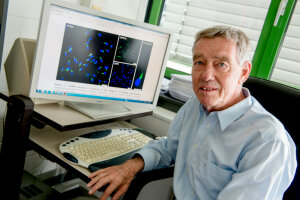
Hanns Hatt an der Mainzer Universität. Dort erklärt der Bochumer Riechforscher im Sommersemester 2019, wie der Geruchssinn funktioniert.
Prof. Dr. Dr. Dr. habil. Hanns Hatt vom RUB-Lehrstuhl für Zellphysiologie besetzt im Sommersemester 2019 die Stiftungsprofessur der Johannes-Gutenberg-Universität Mainz. Er will dort einem breiten Publikum das Thema „Die Macht der Düfte: Alles über das Riechen und wie es unser Leben bestimmt“ vermitteln.